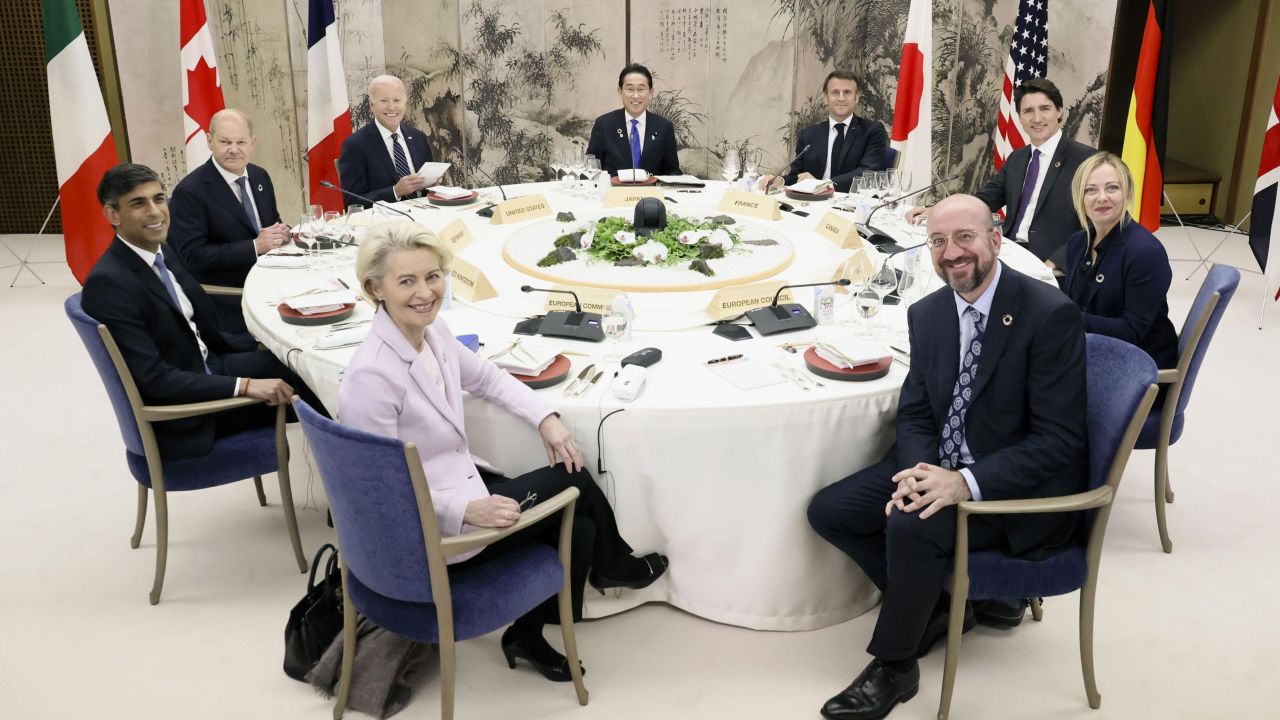Prime Minister Narendra Modi successfully concluded his visit to Japan, where he participated in the G7 summit, held in Hiroshima. The summit, which brought together leaders from the world’s wealthiest democracies, was a platform for discussions on a wide range of global issues. PM Modi expressed his gratitude to Japanese Prime Minister Fumio Kishida and the people of Japan for their warm welcome and hospitality during his stay.
In a tweet, PM Modi wrote, “It has been a fruitful visit to Japan. Met several world leaders during the G-7 Summit and discussed a variety of issues with them. Gratitude to PM @kishida230, the Government and people of Japan for their warmth. Leaving for Papua New Guinea in a short while.”
During the G7 summit, PM Modi had the opportunity to meet with several prominent leaders, including United States President Joe Biden, UK Prime Minister Rishi Sunak, and Ukraine’s President Volodymyr Zelensky. The summit also provided a platform for the Quad summit, where PM Modi, along with leaders from the United States, Australia, and Japan, discussed the importance of the Quad coalition in ensuring peace, stability, and prosperity in the Indo-Pacific region.
Fostering Multilateralism: PM Modi’s Visit Underscores India’s Commitment to Collaboration, Peace, and Prosperity on the World Stage.
In Hiroshima, PM Modi unveiled a bust of Mahatma Gandhi, symbolizing India’s commitment to non-violence and peace. He also took the time to interact with the Indian diaspora in Japan, emphasizing the strong cultural ties between the two nations. Additionally, PM Modi met with a prominent Japanese artisan and a linguist who promote Indian culture through their work, further enhancing bilateral relations.
The G7 summit, under Japan’s presidency, extended invitations to India and seven other countries, recognizing their significance in global affairs. This gesture showcased the growing influence and importance of India on the world stage.
As PM Modi’s three-nation tour continues, his next destination is Papua New Guinea, where he will co-host the third summit of the ‘Forum for India-Pacific Islands Cooperation’ (FIPIC) alongside Papua New Guinea’s Prime Minister James Marape. This summit aims to strengthen cooperation and foster closer ties between India and the Pacific island nations.
The final leg of PM Modi’s trip will take him to Australia, where he is scheduled to hold bilateral talks with Australian Prime Minister Anthony Albanese. The originally planned Quad summit, which was to be held in Australia, was scaled down after President Biden’s cancellation due to domestic debt ceiling negotiations. Nevertheless, PM Modi’s visit to Australia signifies the importance of the bilateral relationship between the two countries.
PM Modi’s multi-nation tour over the course of six days reflects India’s commitment to engaging with global partners and strengthening international cooperation. Through his interactions and discussions with world leaders, PM Modi seeks to address various global challenges and contribute to the promotion of peace, stability, and prosperity in the Indo-Pacific region and beyond.
Prime Minister Narendra Modi successfully concluded his visit to Japan, marking a significant milestone in India’s international engagements. The visit, which encompassed participation in the G7 summit and various bilateral meetings, showcased India’s commitment to global cooperation and its growing influence on the world stage.
During the G7 summit held in Hiroshima, PM Modi had the opportunity to engage with world leaders from the United States, France, the United Kingdom, Italy, Germany, Canada, and Japan. These discussions covered a wide range of pressing global issues, including climate change, economic recovery, and the promotion of democracy. PM Modi’s presence at the summit not only allowed India to voice its perspectives on these matters but also provided a platform to strengthen diplomatic ties with key nations.
The G7 summit also facilitated the Quad summit, a meeting between the leaders of the United States, Australia, Japan, and India. PM Modi emphasized the importance of the Quad coalition in ensuring peace, stability, and prosperity in the Indo-Pacific region. This gathering served as a testament to the strategic partnership between the four nations and their shared commitment to upholding a rules-based international order.
India’s Proactive Diplomacy: PM Modi’s Multi-Nation Tour Reflects India’s Active Engagement in Global Affairs.
Apart from his engagements at the summits, PM Modi seized the opportunity to deepen bilateral relations with Japan. He expressed gratitude to Japanese Prime Minister Fumio Kishida and the people of Japan for their warm welcome and hospitality. The shared cultural and historical ties between India and Japan were further strengthened during PM Modi’s visit. He unveiled a bust of Mahatma Gandhi in Hiroshima, symbolizing India’s message of peace and non-violence. Additionally, PM Modi engaged with the Indian diaspora in Japan, highlighting the role of the Indian community in fostering strong people-to-people connections.
Following his successful visit to Japan, PM Modi’s next stop is Papua New Guinea, where he will co-host the third summit of the ‘Forum for India-Pacific Islands Cooperation’ (FIPIChttps://en.wikipedia.org/wiki/Forum_for_India%E2%80%93Pacific_Islands_Cooperation) with Prime Minister James Marape. This summit aims to enhance cooperation between India and the Pacific island nations, focusing on areas such as trade, investment, and sustainable development. By strengthening ties with these nations, India seeks to expand its regional influence and contribute to the well-being of the Pacific island communities.
The final leg of PM Modi’s tour will take him to Australia, where he is scheduled to hold bilateral talks with Prime Minister Anthony Albanese. This visit highlights the significance of the India-Australia partnership and underscores the shared values and interests between the two countries. Despite the scaled-down Quad summit due to President Biden’s absence, PM Modi’s visit underscores the commitment to deepening ties and exploring avenues for collaboration in areas such as security, trade, and technology.
PM Modi’s extensive tour reflects India’s proactive approach in global affairs. By engaging with world leaders, participating in key summits, and strengthening bilateral ties, India aims to contribute to global decision-making processes, advocate for its interests, and address common challenges such as climate change and economic recovery. Through these diplomatic efforts, India reaffirms its commitment to multilateralism and the pursuit of a more inclusive and prosperous world order.
